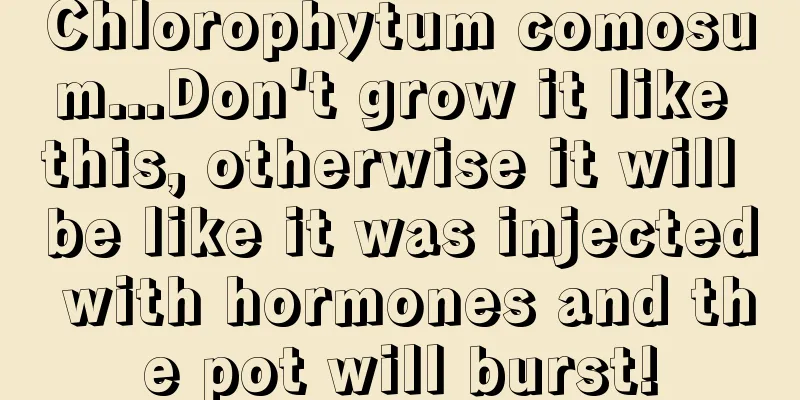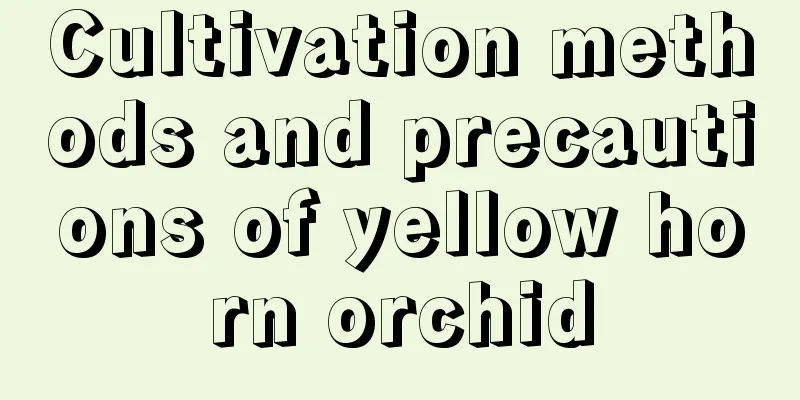What to do if the leaves of Cymbidium orchid turn yellow

Causes and treatment methodsNot enough waterAlthough Cymbidium orchids prefer moisture, their potted plants have strong moisture retention and their roots are fleshy, so they are relatively resistant to slight cold and are relatively cold-tolerant. Therefore, it is recommended not to water too much. Only clean water close to room temperature is needed for watering. No fertilizer is needed during the flowering period. Fertilizer should be applied after the flowering period. Otherwise, the flowering period will be shortened and improper use of fertilizer will cause fertilizer damage. You can control the watering intervals according to the room temperature. When watering, water slowly and don't be too impatient. Potting medium contains easily degradable organic matterThe Cymbidium orchids sold on the market now are all replaced with more beautiful and noble porcelain pots. However, due to the large size of the pots during the repotting process, some merchants will add some flower soil into the pots. However, not all of the flower soil is decomposed. By the time the pots are sold, the organic matter will ferment and release heat energy, which will cause certain damage to the flowers. The roots of Cymbidium are burned and gradually begin to rot, causing the plant to turn yellow or wither and die. It is recommended to carefully observe the potting soil of the flowers to ensure the healthy and vigorous growth of the flowers. Cold air damageAlthough Cymbidium orchids are relatively cold-resistant, they cannot withstand relatively low temperatures. On the way home from purchase, it is very likely that it will be hit by cold air, causing certain damage to the leaves or flowers. If the symptoms do not show up at the time, they will gradually emerge after a few days. For this type of harmful flowers, you can only cut off the yellowing leaves and slowly care for them, but it will not generally be fatal. Small environmental discomfortCymbidium is a flower that prefers high air humidity. If it is placed in a room with low air humidity and high temperature, its leaves will turn yellow and the edges will burn. You can spray water several times a day to increase the humidity of the small environment. In addition, in a small environment that is prone to dryness, such as where there is direct air conditioning or close to a heater, burnt edges or yellow leaves may easily appear. If this phenomenon occurs, you only need to make some adjustments, but the leaves that have turned yellow have to be cut off. The lighting is too poor and the amount of light is smallCymbidium likes to be exposed to sunlight but is afraid of direct strong light. Generally, scattered light is the best. Insufficient light can also cause adverse symptoms in its growth. Generally, the placement of flowers for indoor appreciation is determined by the location of the room, but at this time, attention should also be paid to whether the flowers can adapt to the microenvironment of this location. I believe that in the near future, everyone will become an excellent master of home flower cultivation, so let's start planting quickly~ |
<<: What to do if the pitcher plant withers
>>: What to do if the leaves of white orchid turn yellow
Recommend
What is the function of lotus leaf pepper grass
The ornamental effect of lotus leaf peperomia Lot...
How to grow Milan in summer? The flowers are beautiful and the leaves are green!
Milan summer maintenance method: Sunlight: Milan ...
Good seeds of succulent plants, easy to identify at a glance
Where to buy good seeds Recently, many people are...
When is the best time to plant ice grass seeds?
Planting time of ice grass seeds Ice grass is a p...
How to trim the lucky tree
1. Prune the remaining leaves The lucky charm pla...
How to prune the arrowhead flower
When to prune the arrowhead flowers Pruning of th...
What flowers are suitable for growing in Rizhao? What are the city flowers and trees?
1. Climate characteristics of Rizhao Rizhao has a...
Can papaya trees be planted in Hunan?
Can papaya trees be grown in Hunan? Papaya trees ...
What is the meaning of longevity flower
1. Longevity and health Giving longevity flowers ...
How to plant lettuce seeds
Lettuce seed planting time Lettuce is generally p...
Cultivation methods and precautions of Cassia tora
Growth habit There are many of these plants in th...
What vegetables are suitable to plant after New Year's Day? What vegetables are suitable to plant around New Year's Day?
The temperature will be relatively low after New ...
How to grow pineapple flowers
1. Selection of potting soil A well-drained subst...
What fertilizer is best for Koelreuteria paniculata
Fertilization time of Koelreuteria paniculata 1. ...
Flower language and value of Camellia sasanqua
Flower language of Camellia sasanqua The flower l...









